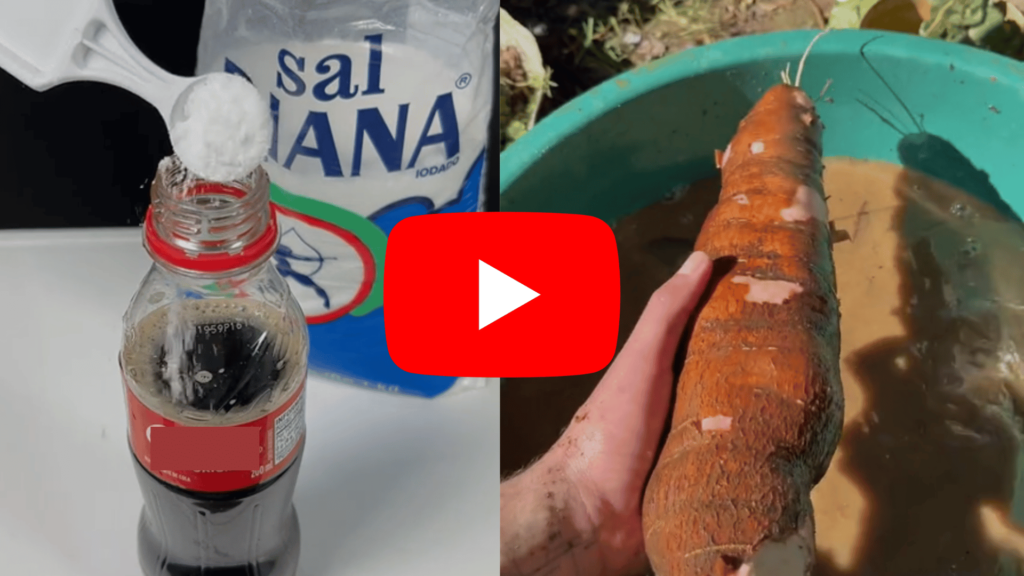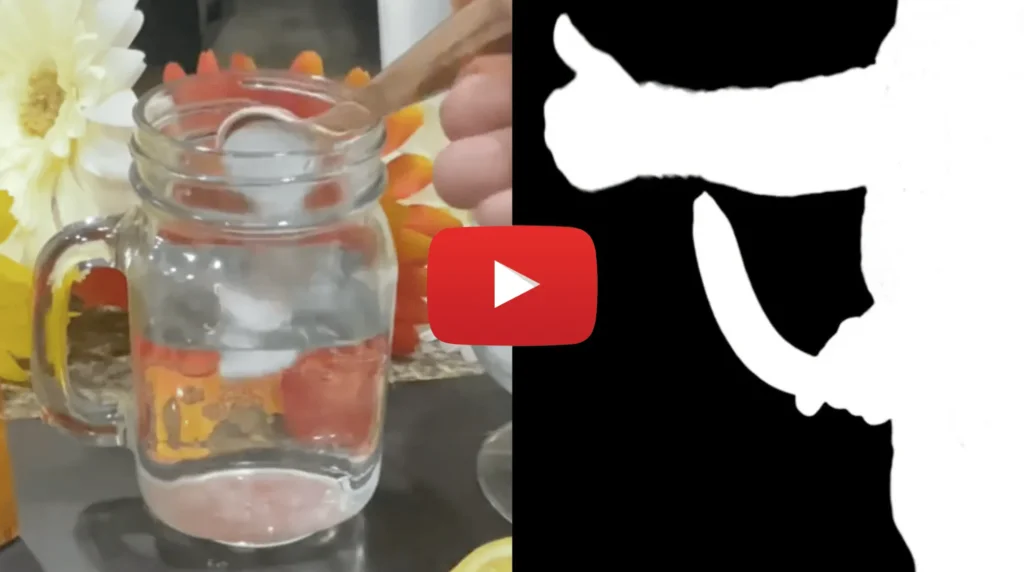Salt Trick Does It Work: The Ultimate Guide To Debunking Or Confirming This Age-Old Hack
Have you ever wondered if the salt trick actually works? Well, buckle up because we're diving deep into the world of kitchen science and uncovering the truth behind this controversial method. Whether you're trying to get rid of stubborn stains, de-ice your windshield, or even enhance your cooking game, the salt trick has been touted as a miracle solution by many. But does it live up to the hype? Let's find out!
Imagine this: you're in your kitchen, scrolling through social media, and suddenly you come across a viral video claiming that sprinkling salt on everything from burnt pans to slippery driveways can solve all your problems. Sounds too good to be true, right? Well, the salt trick has been around for generations, passed down from one home chef or DIY enthusiast to another. But is it really as effective as they say?
In this article, we're going to break it down for you, step by step. We'll explore the science behind the salt trick, its applications, and most importantly, whether it actually delivers results. So, whether you're a skeptic or a believer, keep reading to find out the truth about this popular household hack.
What Exactly Is the Salt Trick?
The salt trick refers to the use of salt in various household and culinary applications to achieve specific results. It's not just about adding flavor to your food; salt has been used for centuries to perform a wide range of tasks, from cleaning to preserving. But how does it work, and why is it so popular?
At its core, the salt trick relies on the unique properties of sodium chloride. Salt is hygroscopic, meaning it attracts water molecules, which makes it an excellent tool for absorbing moisture. It's also abrasive, making it great for scrubbing away tough stains. Plus, it lowers the freezing point of water, which is why it's often used to de-ice roads and windshields.
But here's the thing: while salt is a versatile and inexpensive solution, its effectiveness depends on the specific application. Some salt tricks are backed by science, while others are more myth than reality. Let's take a closer look at some of the most common uses of the salt trick and see how they stack up.
Does the Salt Trick Work for Cleaning?
Common Cleaning Applications
One of the most popular uses of the salt trick is in cleaning. Whether you're dealing with a burnt pan, a stained coffee mug, or a dirty sink, salt is often recommended as a natural and eco-friendly solution. But does it really work?
- Burnt Pans: Sprinkling salt on a burnt pan and letting it sit for a few minutes can help loosen the stuck-on food particles. The abrasive nature of salt makes it effective for scrubbing away stubborn residue.
- Stained Cups: For coffee or tea stains, a mixture of salt and baking soda can work wonders. The salt acts as a gentle abrasive, while the baking soda helps neutralize odors.
- Dirty Sinks: A paste made from salt and water can be used to scrub away grime and dirt from sinks and other surfaces. Just be careful not to use it on delicate materials like marble.
While the salt trick can be effective for cleaning, it's important to note that it may not be suitable for all surfaces. Always test a small area first to ensure that it won't cause any damage.
Can Salt Really Remove Stains?
Science Behind Stain Removal
When it comes to stain removal, the salt trick is often praised for its ability to lift stains from fabrics and surfaces. But how does it work?
Salt's hygroscopic properties make it an excellent tool for absorbing moisture, which is why it's often used to blot up spills. By sprinkling salt on a fresh stain, you can help prevent it from setting and make it easier to remove later. However, the effectiveness of the salt trick depends on the type of stain and the fabric.
For example, salt can be particularly effective for removing red wine stains from cotton or linen fabrics. Simply sprinkle salt on the stain and let it sit for a few minutes before rinsing with cold water. However, for more stubborn stains like grease or ink, you may need to use a combination of salt and other cleaning agents.
Is the Salt Trick Effective for Cooking?
Enhancing Flavor and Texture
When it comes to cooking, the salt trick is all about enhancing flavor and texture. Whether you're seasoning a steak, preserving vegetables, or even making ice cream, salt plays a crucial role in bringing out the best in your ingredients.
- Seasoning Meat: Salting meat before cooking can help draw out moisture, creating a delicious crust and enhancing the flavor. Just be sure to let it sit for at least 45 minutes before cooking.
- Preserving Vegetables: Salt has been used for centuries to preserve vegetables by inhibiting the growth of bacteria. This is the basis of traditional fermentation methods like sauerkraut and kimchi.
- Making Ice Cream: Adding salt to the ice around your ice cream maker can lower the freezing point, allowing the ice cream to freeze more quickly and evenly.
While the salt trick can be a game-changer in the kitchen, it's important to use it in moderation. Too much salt can overpower the flavors of your dish and even be detrimental to your health.
Does the Salt Trick Work for De-Icing?
Winter Wonderland Solutions
One of the most well-known uses of the salt trick is for de-icing roads and windshields during the winter months. But does it really work, and is it safe for the environment?
Salt lowers the freezing point of water, which makes it effective for melting ice and snow. This is why it's commonly used on roads and sidewalks to prevent slips and falls. However, excessive use of salt can lead to environmental damage, including soil contamination and harm to aquatic life.
For windshields, a mixture of salt and water can be sprayed on the glass to melt ice and frost. Just be sure to rinse it off afterward to prevent any damage to your car's paint.
What Are the Limitations of the Salt Trick?
When the Salt Trick Falls Short
While the salt trick can be effective in many situations, it's not a one-size-fits-all solution. There are certain limitations to consider before relying on salt for all your household and culinary needs.
- Surface Sensitivity: Salt can be abrasive, which means it may not be suitable for delicate surfaces like marble or glass. Always test a small area first to ensure that it won't cause any damage.
- Environmental Impact: Excessive use of salt can have negative effects on the environment, including soil contamination and harm to aquatic life. Consider using alternative de-icing methods, such as sand or eco-friendly products, in sensitive areas.
- Health Concerns: While salt is essential for cooking, excessive consumption can lead to health problems like high blood pressure and heart disease. Use it in moderation and be mindful of your daily intake.
By understanding the limitations of the salt trick, you can make informed decisions about when and where to use it.
Expert Opinions on the Salt Trick
What the Experts Say
When it comes to the salt trick, opinions are divided among experts in various fields. Some praise its versatility and effectiveness, while others caution against its overuse.
According to a study published in the Journal of Environmental Science, excessive use of salt for de-icing can have long-term effects on soil and water quality. However, the same study notes that when used in moderation, salt can be an effective and affordable solution for many household and culinary needs.
Meanwhile, renowned chef Gordon Ramsay has spoken highly of the salt trick in cooking, emphasizing the importance of proper seasoning and timing. "Salt is the secret weapon in the kitchen," he says. "But you have to know how and when to use it."
How to Use the Salt Trick Safely and Effectively
Tips and Tricks for Success
If you're ready to try the salt trick for yourself, here are a few tips to help you use it safely and effectively:
- Start Small: Whether you're cleaning, cooking, or de-icing, start with a small amount of salt and gradually increase as needed.
- Test First: Always test a small area before applying salt to any surface to ensure that it won't cause any damage.
- Use in Moderation: Excessive use of salt can have negative effects on both the environment and your health. Use it sparingly and consider alternative solutions when possible.
By following these tips, you can make the most of the salt trick while minimizing any potential risks.
Conclusion: Is the Salt Trick Worth It?
In conclusion, the salt trick can be a valuable tool for a wide range of household and culinary applications. From cleaning and stain removal to cooking and de-icing, salt's unique properties make it an effective and affordable solution for many common problems. However, it's important to use it wisely and in moderation to avoid any negative effects on surfaces, the environment, or your health.
So, does the salt trick work? The answer is a resounding yes, but only when used correctly. Whether you're a skeptic or a believer, we hope this article has provided you with the information you need to make informed decisions about incorporating the salt trick into your daily routine.
Now it's your turn! Have you tried the salt trick? What are your favorite uses for it? Leave a comment below and let us know. And don't forget to share this article with your friends and family so they can learn the truth about the salt trick too!
Table of Contents
- What Exactly Is the Salt Trick?
- Does the Salt Trick Work for Cleaning?
- Can Salt Really Remove Stains?
- Is the Salt Trick Effective for Cooking?
- Does the Salt Trick Work for De-Icing?
- What Are the Limitations of the Salt Trick?
- Expert Opinions on the Salt Trick
- How to Use the Salt Trick Safely and Effectively
- Conclusion: Is the Salt Trick Worth It?
Salt Trick For Bigger Penis: The Truth Behind The Hype You Need To Know
Ivory Hill Japan: The Hidden Gem You Didn’t Know You Needed
RemoteIoT VPC Network Raspberry Pi AWS Download: The Ultimate Guide To Setting Up Your Secure Cloud Network

Salt Trick M Health News

Salt Trick Try 15 Second Health News

SALT TRICK (⚠️SCAM OR LEGIT?⚠️) SALT TRICK FOR MEN VIDEO WHAT IS THE